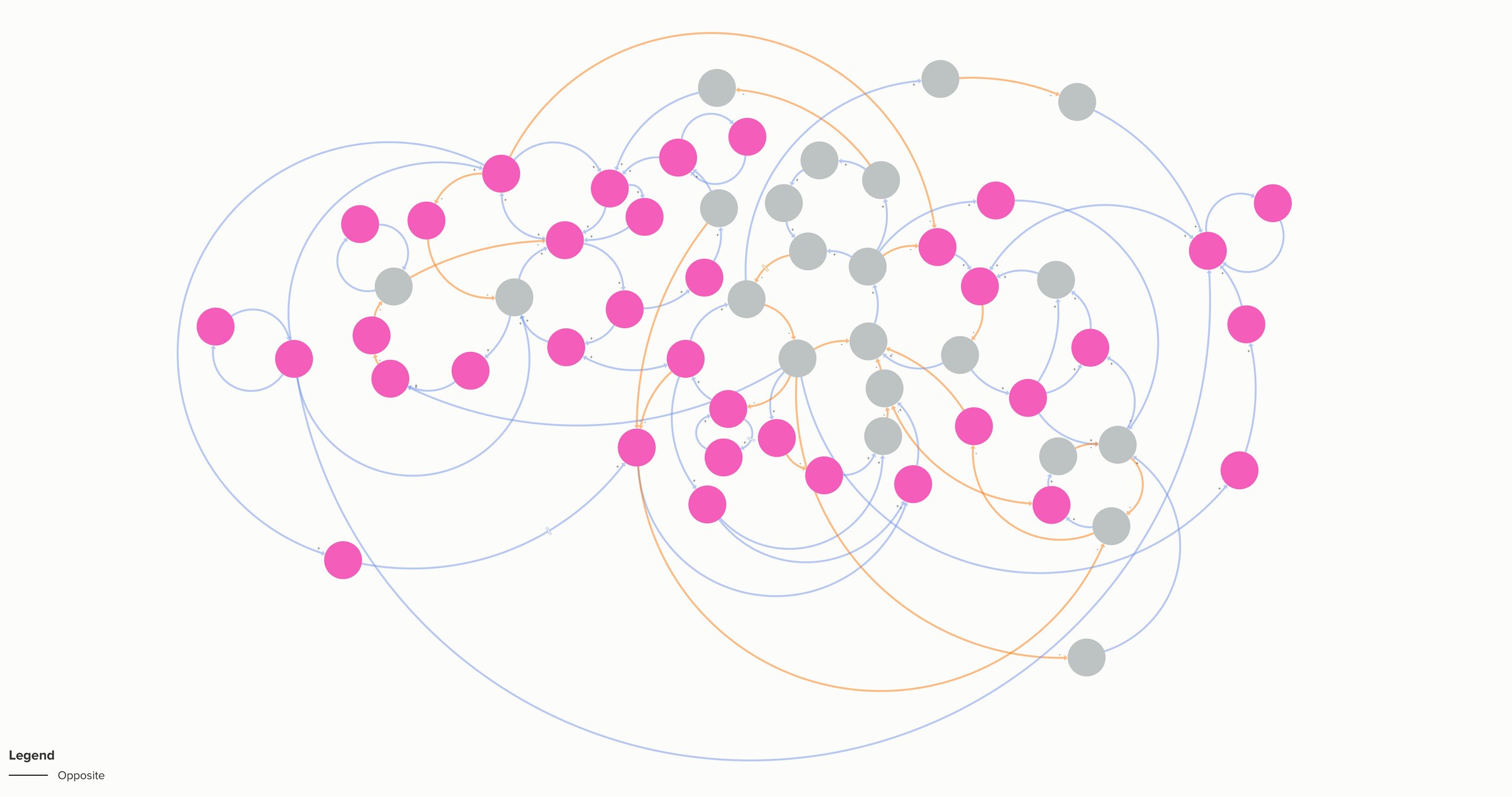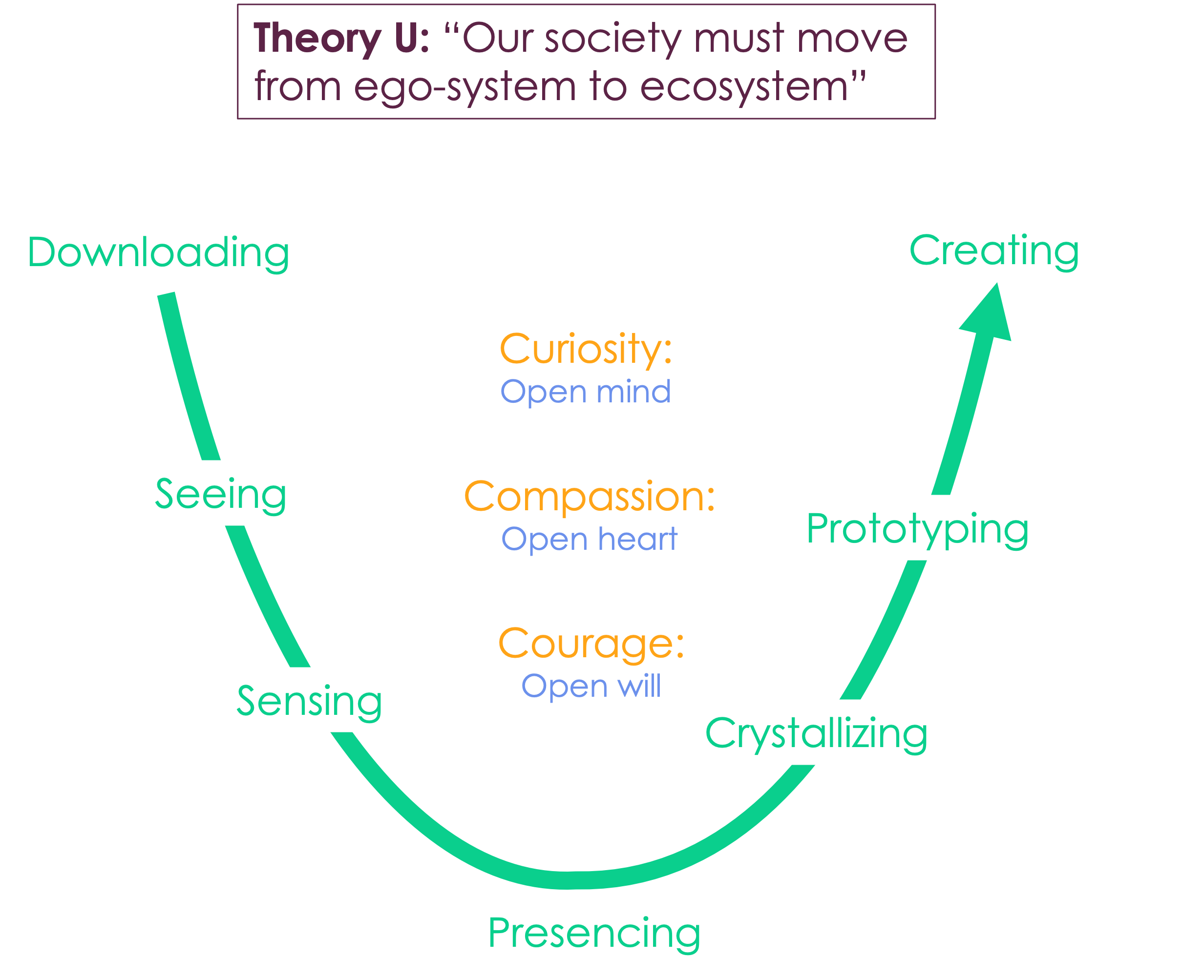One simple trick to solve systems change.
(You won’t believe it !)
See what just happened there?
Click bait, that’s what.
It works, because we want to believe there is always a shortcut, always a magic pill, always one simple trick.
And that’s a problem for systems change.
The problem with complex systems is that they’re complex(!), which makes them unpredictable, non-linear, self-organising, and absolutely not solvable with one simple trick.
But we still want to believe it. That’s why click bait works.
In our job as systems entrepreneurs, we meet organisations and people who live in our modern, short-term, attention-deficit, instant-gratification, choice-paralysing, on-demand, next-day-delivery, world.
It’s a world that tells us all: one simple trick is just a click away.
It’s hypnotic.
But it’s dangerous: choose a strongman leader (one messianic trick); close the borders (one policy trick); use paper straws (one environmental trick); take some semaglutide (one health trick); [you can add your own here if you like]... all of it stoked by algorithms that worship individualism in a famously social species of ape (homo sapiens) and, fed on a diet of pure attention, favour performance and shouting, above thinking and wisdom, in almost any arena you can name.
We have to un-learn this if systems change is going to be more than click bait.
And it is so much more than click bait.
The signs are all there in the tools we use to think about systems:
6 Conditions tells us that policy, or practice, or any other question of how, is not enough on its own, we need them all;
Systems maps tells us that where to intervene is a multiple-choice question because everything is connected;
3 Horizons spells out that when it comes to when: we need the incumbents, the innovators, the imagineers, and slow, deep, time;
2 Loops is the story of togetherness, the story that all of us is smarter than any of us, the story that when it comes to who, maybe we should stop looking for a saviour, maybe we’re the ones we’ve been waiting for;
Theory U reminds us that there are people in the system, that systems are ‘in here’ as well as ‘out there’, and that we need to work on ourselves if we’re going to stand a chance of working on systems.
If these systems tools seem new or unfamiliar, you might like to head over here, to hear more.
None of these things pretend that systems change is going to be easy, or quick.
Our usual advice is:
don’t just do something, sit there!
But the power of click-bait is strong.
We’ve started keeping count of requests that sound like one simple trick: The boards who ask for systems to be simplified to a top five list of low risk, fundable aims; the chief execs who ask if systems change can be retrofitted to their five year strategy, or delivered with some tweaks to national policy; the management teams who want to demonstrate that their existing short-term grants are already changing the system.
Systems change doesn’t fit into these frames of thinking. It is a frame of thinking. The old questions don’t make sense anymore. And anything that looks or sounds like ‘one simple trick’ is out of place, and out of time.
Ask not what systems change can do for you, but what you can do for systems change.
If our old, click-bait, quick-&-easy, one simple trick, ways of thinking are not going to help us change systems (and we really do need to change systems, because they really are broken), then what might?
We could do worse than behaving like a system, to change a system. Not in the sense that everyone has to do everything, everywhere, all at once; but more that we need to connect, collaborate, co-ordinate, and co-create.
Take the how of systems, described by 6 Conditions of Systems Change. If funders and charities fell in love with the problem they were trying to solve, rather than being in love with their particular solution, they could join the dots between them and shift the conditions holding the problem in place. For example, one organisation could have a particular talent for policy change, and another for reforming power dynamics. If they were to collaborate, and find other organisations in love with the same problem as they are, it wouldn’t be long before there were some co-ordinated interventions across every one of the 6 conditions of systems change. And that is how you change a system: working on all the conditions that are holding a problem in place. Same problem: connected, collaborative response. One simple trick? Nowhere to be seen.
6 Conditions together: a system shared, is a system changed
Ditto systems maps: the where of systems change. Organisations could work on interventions in different parts of the map, to affect where change is coming from, and where it’s going to. Same system: co-ordinated, connected response. A better chance of actually changing something. And no room for one simple trick.
Systems Change together: place your bets on different places in the system
Ditto 3 Horizons: the when of systems change. Some organisations could work on imagination, some on innovation, some on the incumbent system; all of them together working on the world as it is, the world as it could be, and the pathway from one to the other. The alternative, not working together, might just allow the current system to drive a wedge between the people that want to change it and end up with everyone stereotyping one another instead of fixing the incentives in the system (the real villains). See if you can spot which is which in the 3 Voices diagram below. Heavy hints included (!) but not even a hint of one simple trick.
3 Voices for 3 Horizons: collaboration and co-ordination on the left (systems change); unilaterlism and separatism on the right (nothing changes).
Ditto 2 Loops. Ditto Theory U. You get the idea by now: if we’re going to stand a chance of changing systems, we need to work together and we need to work on ourselves. And that means people.
And that work, like learning a musical instrument, or a new language, or anything truly worthwhile, is immune to ‘one simple trick’. It needs practice, and support, and time.
Take that, click-bait !








